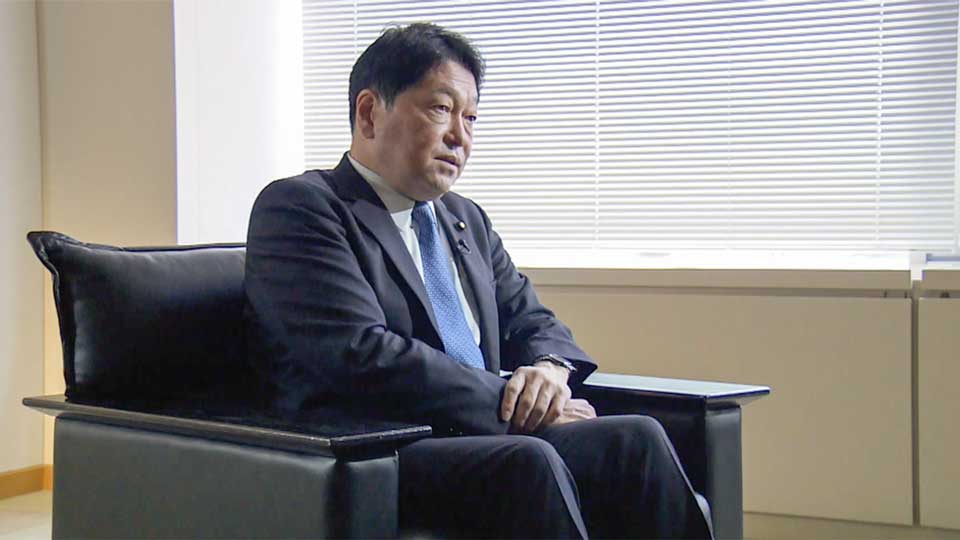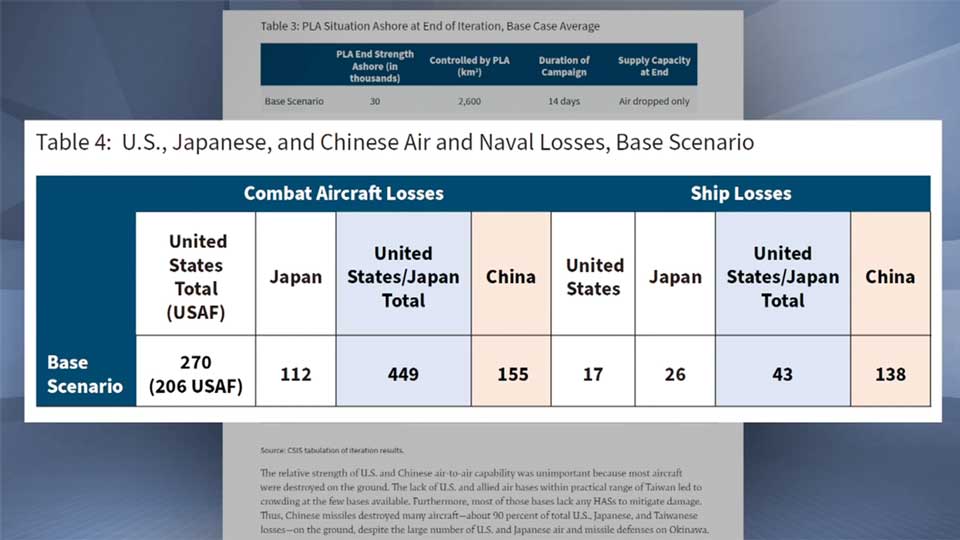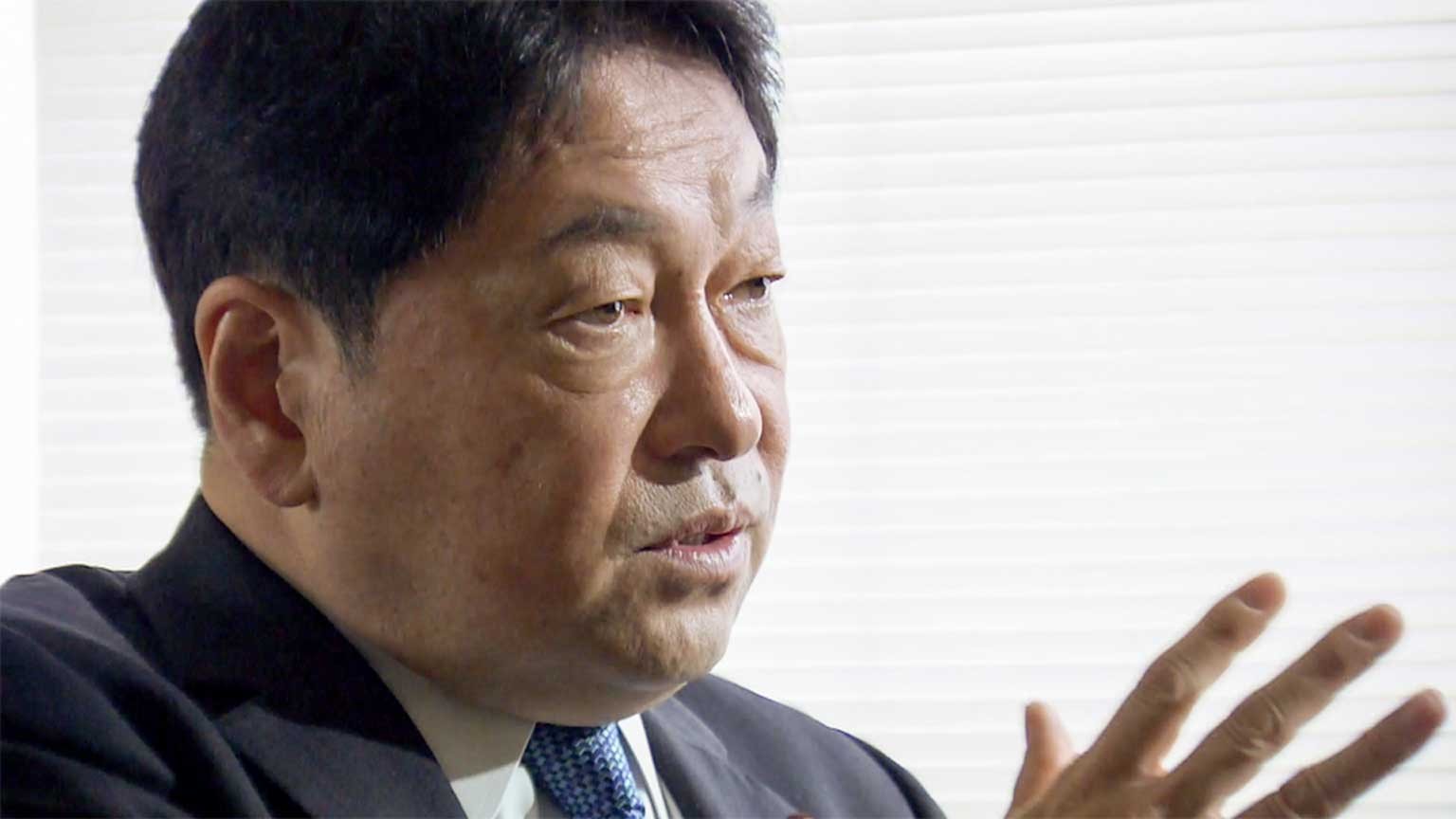Onodera Itsunori, a Diet member who belongs to the ruling Liberal Democratic Party, served as Japan's defense minister between 2012-14 and 2017-18. He now oversees the party's security policy.
In an interview with NHK World, Onodera notes that if the Chinese military invades Taiwan, the US would likely intervene. Even if that only means arms support, he says, it would eventually lead to military conflict with China. In any case, Onodera expects Washington would ask Japan for assistance.
Japan's legal framework, amended in 2015 to allow for collective self-defense, allows for Japan to use force together with the US.
"Japan's security...is built on a team approach with the US," explains Onodera, who adds that if Washington asks, "then the Japanese prime minister has no choice but to focus on the US as an ally."
"I think that no matter who becomes prime minister, [they] would take this decision roughly in this direction."
Onodera also points out that military bases in Japan would be an obvious potential target: "If China thinks it has to cut off the source to stop reinforcements coming to Taiwan, the target of the attack would definitely be inside Japan. If that is the case, where should they first crush to gain control of the airspace? If you are a military expert, I think the answer is already clear."

Expecting the worst
The former defense minister's warnings come as the international community prepares for a Taiwan contingency. In February, the director of the US Central Intelligence Agency, William Burns, said US knew "as a matter of intelligence," that China's President Xi Jinping has instructed the People's Liberation Army to be ready by 2027 to conduct a successful invasion. He described that goal as a measure of Xi's focus and ambition.
Similar statements have been made by other senior US government and military officials – and it's not just people in leadership who are worried.
A poll conducted by Japanese think tank The Genron NPO last November found 44 percent of Japanese, and 56 percent of Chinese, respondents believed that a Taiwan emergency would occur "within a few years" or "in the future."
Onodera says a collective sense of crisis is informed by the situation in Ukraine. "I think a lot of people probably thought that Russia would never unilaterally invade Ukraine in this era," he observes, adding "many senior US officials have assessed that there is a high probability that China will attempt to reunify Taiwan, even by force."
China invades: 24 scenarios
Washington's Center for Strategic and International Studies (CSIS) published a report in January that considers 24 wargames in the event of a Taiwan contingency.
In the base scenario, China starts by flexing its military muscle with large-scale drills on Taiwan's doorstep. The US military reacts by deploying aircraft carriers to the region two weeks ahead of an invasion. But China still pulls the trigger, and bombards Taiwan with ground-launched missiles.
According to the CSIS model, China's attack destroys most of Taiwan's navy and air force within hours. Chinese forces then attempt to cross the Taiwan Strait in amphibious ships. The US, Japan and Taiwan respond with missile attacks of their own. Together, they wipe out more than 90 percent of China's amphibious fleet, leaving the invaders in control of only a small area of Taiwan.
Most of the outcomes conclude with Taiwan, the US and Japan gaining the upper hand. But three cases that assume conditions favorable to China result in a stalemate that would leave China in the better position of the two sides. Another two end with straight-up stalemates.
The CSIS simulations find that Chinese military attacks are not limited to Taiwan. The report anticipates China launches missile strikes on US aircraft carriers, American bases in Japan and Guam, and Japan's own bases.
It even goes as far as to estimate hardware losses, forecasting that Beijing's attacks destroy more than 380 US and Japanese aircraft, and sink 17 US ships, including two aircraft carriers. Another 26 Japanese Self-Defense Force vessels go down.

Ramping up defense capabilities
The report cites medium-range cruise missiles as key to preventing Chinese troops from landing on Taiwan. But the US lags behind China in this type of arsenal, because until 2019, its treaty with Russia restricted it from developing medium-range missiles.
The US is now rushing to produce and develop missile capabilities, and at the same time, Japan is working to bolster its defense.
Onodera feels that the preparations being made by Japan and the US could be inadequate. "Japan is now increasing its defense budget and trying to enhance its capabilities", but "it will take a certain amount of time," he says.
"What I am worried about is that if maybe China starts to invade before Japan and the US are ready, I think this will be really serious."
Deterrence remains key
Onodera says Japan's key goal with any military buildup is to prevent a clash.
"The only thing we can do now is to use deterrence and keep sending out the message to China that, in any case, they should not invade Taiwan by force.
"Nobody wants to fight. We also have a long history with China, and China is an economic power with cultures we respect. And it is a big, big part of East Asia. A conflict with such a country would never be positive for either of our countries. That is why we are now making various diplomatic statements towards China, but I still think we have to show our attitude to some extent and increase our deterrent power."

